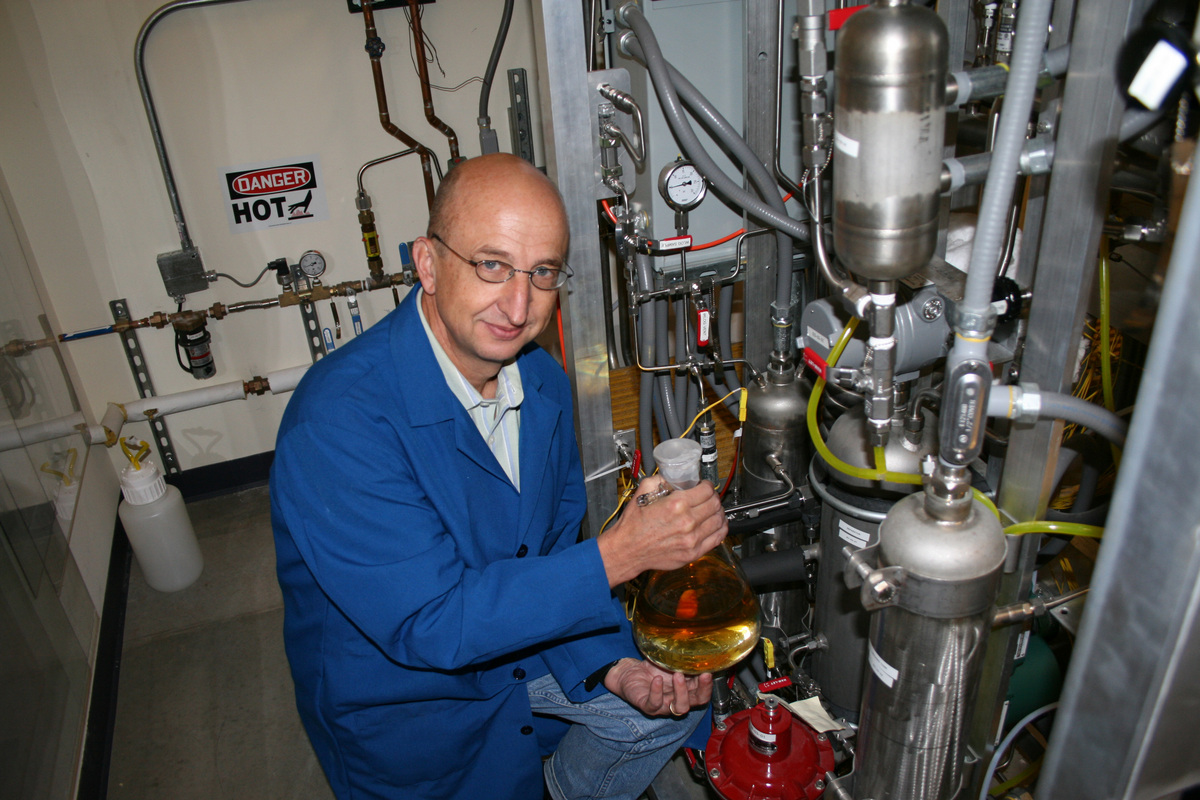UW–Madison spinoff companies featured in economic report

Virent, Inc. builds on research begun with grants from the Department of Energy to UW–Madison chemical engineers Randy Cortright (above) and Jim Dumesic. Virent is turning sugars from plants into a new generation of fuels and plastics that could replace those made with petrochemicals.
Photo: Virent, Inc.
The investment made in science at UW–Madison and colleges and universities across the United States helps drive the country’s economy directly through the creation of new companies based on that science, according to a new report released today by The Science Coalition. “Sparking Economic Growth 2.0” highlights 100 companies that trace their roots to federally funded university research — including Cellular Dynamics International and Virent, a pair of Wisconsin companies that emerged from Madison’s campus.
“Innovation is a cornerstone of American progress, improving our lives in countless ways and providing jobs and economic growth. For decades, innovation has been fueled by federally funded research that is conducted at universities across our nation,” says UW–Madison Chancellor Rebecca Blank, an economist and former acting secretary of the U.S. Department of Commerce. “America’s future economic prosperity depends on increased investments in research and education that will accelerate innovation and inspire future generations of scientists.”
“America’s future economic prosperity depends on increased investments in research and education that will accelerate innovation and inspire future generations of scientists.”
Rebecca Blank
But America’s investment is not increasing. According to the coalition’s report, federal research and development spending dipped to historically low levels in 2013. Budget cuts known as sequestration, which began in March, will strip $95 billion from federal research support through 2021.
That trend is jeopardizing the basic scientific research that spurs the economy in many ways — including giving rise to companies like Virent, which is turning sugars from plants into a new generation of fuels and plastics that could replace those made with petrochemicals. Virent employs more than 100 people, building on research begun with grants from the Department of Energy to UW–Madison chemical engineers Randy Cortright and Jim Dumesic.
With funding from the National Institutes of Health, stem cell pioneer James Thomson and three other UW–Madison scientists laid the groundwork for Cellular Dynamics, and pathology professor Lynn Allen-Hoffmann turned the discovery of a unique skill cell into treatments for burn victims, alternatives to animal testing for consumer products, and high-tech jobs at Stratatech Corporation.
The total federal investment in the fundamental research that contributed to the discovery or technology behind the 100 companies in “Sparking Economic Growth 2.0” was about $330 million, a figure dwarfed by the roughly $552 million the U.S. economy commits daily to fight cancer (with the help of TomoTherapy, another company created using technology developed at UW–Madison with federal funding).
“If America wants to maintain its innovative edge, create meaningful jobs and realize economic growth, then we must ensure that funding for scientific research is prioritized, even in times of cost-cutting.”
Tim Leshan
With universities responsible for more than half the basic science conducted in the United States — compared to 20 percent attributable to industry — the Science Coalition’s report illustrates the need for continued investment in research at academic centers.
“While research is only a small portion of the overall federal budget, the results are huge: discoveries with profound implications for our health, safety and quality of life; training for future generations of scientists, doctors and teachers; and innovations that give birth to new technologies, companies and industries,” says Tim Leshan, Science Coalition president. “If America wants to maintain its innovative edge, create meaningful jobs and realize economic growth, then we must ensure that funding for scientific research is prioritized, even in times of cost-cutting.”
See more information, the full report and a searchable database of companies.
Tags: research



